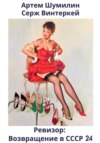Читать книгу: «The Ranch Girls at Home Again», страница 5
CHAPTER IX
A DILEMMA AND A VISITOR
"GREAT SCOTT," muttered Jim Colter at the breakfast table some days later, "if there was only another man around this place to take care of you women, I would not let Ralph Merrit carry so much of this burden alone. It's getting past a one-man's game to manage our present affairs."
In return Jack shook her fist at him with what was not all a pretense of indignation. "Ruth, you may not object to hearing your husband speak of you as a burden," she protested, "but I can't say I ever like hearing that I am not able to look after myself. Oh, yes, I know what the family thinks of my vanity! But seriously, Jim, there isn't any danger, no matter what goes on down at the mine, of anybody's annoying us. You need not worry over leaving us alone. I am quite sure we don't need 'another man.' The ranch is too full of them already!" And Jack shrugged her shoulders in the face of her guardian.
But from her place at the head of the table behind a big silver coffee urn, Ruth looked at the girl in the seat next her who had just finished speaking.
"I am sorry to hear you say that, Jack," she began quietly, "because pretty soon we are going to have what you and Jim are pleased to call 'another man' as our guest at the Rainbow Lodge and one whom of all others I most wish to see."
Jack was puzzled, but Olive Van Mater, with a swift glance at the older woman, felt the blood leaving her face and her hands turning cold. Her lids drooped swiftly over her dark eyes and immediately she devoted herself to eating her breakfast, though all the while she was studying Jack's expression.
At this moment a diversion was created by the entrance of a very fluffy, blue-eyed person in a pale blue breakfast toilet, who after kissing Ruth slipped into a place next her sister.
"Sorry I'm late," she said, without any suggestion of real contrition, "but since Jim makes us stay in the house so much lately there isn't any reason for getting up."
"Thank you, Frieda darling, for the pleasure you take in our society," Jean murmured, setting down her coffee cup in mock indignation. "I am sure that each and every member of your family feels grateful to you for your flattering suggestion. But since we are of no interest to you, perhaps you would like to hear that Ruth has just said we are to have an unexpected visitor – a man!"
Frieda first helped herself to the entire pile of griddle cakes. "I suppose everyone else has nearly finished," she remarked by way of explanation. And then: "Oh, I suppose the visitor is one of those tiresome men who is coming to help Ralph about the mine. I do wish things would quiet down, because as soon as our new house is finished Jean and I are dying to have a houseparty. Ralph said himself that his mining engineers were too old to be any fun – the youngest one is past thirty!"
"Yet I am still able to get about at that age, Frieda Ralston," Jim Colter protested.
At this instant Jack shook her head. "We are being very impolite to Ruth by talking so much," she declared. "Ruth was going to tell us about a new visitor and of course we are desperately anxious to hear. Who is he, Ruth, a stranger or an old friend? And where are you going to find a place for any one else at Rainbow Lodge?"
Purposely Ruth waited a moment in the silence that followed.
"I'll give you three guesses," she said finally.
"Peter Drummond and Jessica! Wouldn't it be splendid if they came to us on their wedding trip?" Jack answered immediately.
"No," Ruth answered.
"Tom, the chocolate-drop boy!" Jean exclaimed, laughing at Frieda's sudden blush.
But Olive Van Mater had put down her knife and fork and was looking quietly at Ruth. "May I have a turn at guessing, please?" she asked in her usual gentle fashion. "Isn't our visitor to be Frank Kent?"
And then as Ruth nodded with a smile of pleasure every pair of eyes at the table immediately turned upon Jacqueline Ralston.
And Jack's cheeks grew suddenly a deeper pink, like the heart of a pink rose, for she was too surprised for the present to be self-conscious.
"You must be mistaken, Ruth dear," she insisted. "Frank hasn't written me; I haven't said that he could come." And then seeing what her words suggested, she went on in greater confusion, "I thought he was to wait until our house was finished or until later in the summer or until some time," she ended lamely. "I don't understand."
"Perhaps Frank will explain to you, dear," Ruth replied carelessly. And then turning toward the other girls:
"You see Frank has been writing me about his visit for several weeks. But he and I both wanted his coming to be a surprise. He has said that he could not endure waiting longer to see his dearest friends. So a week ago when he arrived in New York he telegraphed me to know when he could come to the Rainbow Ranch and of course I said 'at once.' I rather think he may be here some time this afternoon. You won't have to worry now, Jim, about taking care of your wife and family, for Frank will – "
But Frieda was clapping her hands together with much more pleasure than that slightly selfish young person usually showed.
"Oh, I am so glad, Jack. We do like Frank better than any one we know, don't we? And if you don't, I am sure Olive does," she persisted.
Jim got up from his place. "I don't like this fashion you have, Mrs. Colter, of corresponding with gentlemen and not informing your husband, but just the same I am delighted that Kent is coming to us. It's amazing what a fine fellow he is for an Englishman, and certainly we owe him a lot. When a man marries at another's house – and such a wedding – it's hard work getting even with him!"
Out to the door Ruth followed her husband.
"I am dreadfully uneasy about this trouble at the mine. I did not dare show how much I am worried before the girls. But you must tell me just what the conditions are, Jim. You know we don't believe in marriages where the woman is shut out from facts," Ruth insisted.
For half a moment the man hesitated. Then he kissed the little woman who had to stand on her tip-toes to be on a level with his chin.
"I don't tell you the facts, Ruthie dear, because I don't know them," he answered. "How can I tell what a lot of crazy, obstinate men are going to do? But evidently the miners who deserted us have managed to intimidate the other mine workers in this neighborhood. Ralph has not been able to get hold of any men who want to work for us, and things at the mine have been idle for some time, as you know. So far, all we have been able to do is to have the cowboys do picket duty down at the mine so as to keep the other fellows from wrecking our machinery or blowing us up. There, don't turn white as a sheet, Ruth! I don't believe that the old miners are that anxious to injure us; yet we have to be on the look-out. Merrit has got to be away all day today hunting for men, so I must be on the job. Sorry I can't meet Kent, but you'll see that he is looked after all right and I'll be with you at dinner tonight. I'll bring Merrit with me if I can persuade him – he is apt to be pretty well fagged."
The greater part of the day the four girls spent together in the garden near the Lodge. It was a lovely June day, with the air full of the scents of innumerable wild flowers. And everything within the immediate neighborhood of the Lodge was as peaceful and undisturbed as though the mine were a hundred miles away. Jean and Jack at least half a dozen times confessed to the desire to walk over to the mine and see what was taking place; but since Jim had given strict orders against it they did not quite dare.
A part of the time they spent helping Frieda gather great bunches of violets from her old violet beds, which had never been allowed to die out, until the Lodge was finally filled with them and the big living room was fair and fragrant enough for any festival.
Then, when other amusements failed, there was always the new house to be investigated. It was now so nearly completed that when things quieted down at the mine again, if they were still to have a sufficient income to meet expenses, the moving into the new home was to take place.
While the other three girls were rummaging about making suggestions Jack managed to slip quietly away. She went directly to Ruth, who was in the nursery with her little son. And as Jack was never used to evasions or to trying to get her own way by indirect methods, she asked immediately:
"Ruth dear, may Olive and I drive to the station and meet Frank Kent this afternoon? I have a special reason for wishing to be there. You see, dear, I don't want Frank to think that I am not delighted to see him or that I have put off his coming to us because I had forgotten him. You knew he had been wanting to come for a long time, didn't you?"
Ruth nodded. "I had guessed it, Jack, though I did not know positively until Frank's letter to me. Nor do I know now why you put off his visit. I am not asking you to tell me," she added quickly. For, observing the sudden look of reserve on the girl's face, she appreciated that it must be respected. "Frank merely said that he wanted to see us so much, and I did not see how his coming could fail to give pleasure. You don't mind, do you, dear?" Ruth concluded, wondering if this might be the moment for confidence.
Although still keeping her clear, almost transparently honest gray eyes on her friend, Jack flushed.
"Yes dear, I do want Frank, now that Olive is here," she replied. "I meant to write him and ask him just as soon as things were quiet at the mine again. Now may we go to meet him?"
Ruth looked worried. "I have been wondering what we ought to do about going to the station all morning," she returned. "Of course some of the family must meet Frank or he will feel deeply wounded, but I can't leave the baby and yet there seems no man about the place to go with you girls. Jim has taken possession of everybody."
Jack kissed Ruth on the hair and then bent over and looked at the baby with a new expression of wonder and reverence. She had always been much more afraid of the "little Jimmikins" than the other girls.
"Don't trouble over things a minute, Ruth. You know the danger that Jim is fearful of for us is what may happen here on the ranch. But we shall be leaving the ranch as soon as we drive through the gate. Moreover, we can take Carlos with us for an escort; he is only a boy, but he will do perfectly well. And if we don't take him, it won't make much difference since he would be more than likely to follow us. As far as I can see he trails constantly after Olive like a faithful dog. It would annoy me, but I don't believe she has even noticed how much he does it. I wonder what the boy's exact reason is? Nevertheless, as it gives Carlos a regular occupation, I suppose we should be grateful."
CHAPTER X
CROSS PURPOSES
OLIVE was not so unconscious of the Indian boy's attitude toward her as Jack believed. Indeed she could not well be. And now as the three of them drove together to the station she was pondering on whether or not she should confide her experience to Jack. But Jack was not sympathetic toward Carlos, for with her intense and forceful nature it was hard for her to understand the boy's idleness and dreaming. Therefore to tell her what had recently occurred would doubtless make her prejudice the deeper. For she was almost sure to regard the boy's behavior as impertinence and to wish to send him at once away from the ranch.
Yet though Olive herself was annoyed, she did not wish matters to go so far as that. For she had a peculiar appreciation and pity for the Indian boy's difficulties which no one else could so readily have. Had she not been raised among the Indian people and did she not comprehend their shy, proud natures? For white people to realize that the Indian, even in the midst of his overthrow and degradation, still considers himself their superior is an almost impossible conception. Nevertheless Olive knew this to be true. The white man's religion is to the Indian less full of visions and of dreams. An educated Indian writes:
"When we plant our plumes where the shrines are, our first prayer is for good thoughts – that our children may be wise and strong, and that the God of the sky may be glad of us. I have listened to the mission talk many days, and nothing in the words of the missionary is more white than the thought which we plant with the prayer plumes on our shrines."
Neither does the Indian, though of course there are exceptions in his race as in all other things, have the respect that we feel he should have for the advantages of our education. What more does it teach him of the woods and the fields, of the beauty and imagery of nature, of all that he cares to know? Of a boy who had been to a government school an Indian says:
"He comes back to his people and knows that if he lives there it must be as his father lived – except that now he has more cultivated tastes to satisfy, and no further means or methods of earning the price of them. To plant the corn, herd the sheep, hunt the rabbits, take care of his share of his own village – these are the life-work of the Indian. The schools teach him to do that no better than his fathers did it before him. He is taught to read and write, and he asks 'for what?'
"The cities of the mesa have no books, and have never felt the need of them. Why should he read of the American life he lives apart from?"
Therefore Olive understood that though the boy Carlos might not be able to express himself in this fashion, in his heart of hearts this was exactly the way that he felt. Why should he study what Jim Colter and the girls wished him to learn? Books and figures had no possible interest for him or relation to the life which he meant to lead. His world was the outdoor one, among the animals and birds, under the new moons of each succeeding month, and lifting up his eyes and his heart to the sun when he wished to be glad.
To work like the other men did about the ranch, digging under the earth or plowing in the fields! This was not for the son and the grandson of many chieftains! It was not merely laziness on Carlos' part that kept him from making himself useful, but the feeling that any such labor as he might be expected to do was beneath his dignity. Therefore the boy could never really get into his mind the idea that the white people were his masters, although in a vague way he knew that they felt themselves to be. It was this thought that was always the foundation of Carlos' sullenness and lack of gratitude.
So Olive realized that the Indian boy's letter to her, which she had found at her door one day hidden among a bunch of prairie roses, had not been written in any spirit of presumption or audacity. Had she not at one time seemed to be an Indian like himself? Had she not lived among them, eaten their food and spoken their speech? And was it not for her sake that Carlos had left his own tribe and taken upon himself many of the ways of the white man? The boy had cared for his "Princess Olilie" always, but in years past he had been a boy and felt as one. Now he was a man!
All this and more Carlos had put into his note. Olive remembered it at the present moment almost word for word, for it had touched and hurt her at the same time. Although Carlos was too young to mean all that he had said, she knew that with his queer nature he must suffer from her reply.
For he had written:
My Lady of the Lone Trail:
Are you not weary of the life and the ways of the white women and men? Are you not tired of having your soul shut up between four walls of wood with no vision for your eyes by day and no night wind to touch your cheek as you lay asleep? You and I have grown older now; there is no one in any Indian tribe to hurt us. Have I not stayed quietly here waiting and watching for you, learning many things which I have hated, that we might not fail to understand each other? For my love for you is as the Tu-wa-ni-ne-ma, the sand of the desert.
Therefore will you not come away with me back to the wonderful, free outdoor world, where we lived together for a little while when both of us were children. Under a tree in a dim forest I shall build for you such a nest as only a man shall build for his mate. Then in the day time I shall plant corn while you weave the beautiful Indian blanket, which the Indian Laska taught you to make. And in the night we shall listen to the little night bird of the desert, the Hoetska. But both day and night we shall be alone and away from these people who do not understand me as you do and who will never love you as I do.
Whenever you will come with me, I shall have two horses waiting.
Olive stole a glimpse at Jacqueline's face. For a quarter of an hour they had been sitting beside each other, and yet neither one of them had uttered a word. But certainly she should not tell Jack of Carlos' unhappy and impossible letter. For Jack might be amused, she might be angry, and certainly she would be resentful.
No, Olive decided that she must keep the boy's secret inviolate. Some day she would have a chance to see him alone. Then she might be able to explain how far she herself had traveled from the old Indian days – how she could never again love the things that the boy did, nor endure the life which he wished to lead. Besides, Carlos was only a boy, while she was almost a woman – at least a good many years his senior! Perhaps she might even tell Carlos that it would be best for him to go away from Rainbow Ranch, back to his own people where he could live with Indian boys and girls of his own age. There was the Indian village not far off to which she herself might return after a few years. For one of these days the Indians were to have a teacher who could understand their point of view as well as that of the white people. Perhaps Carlos might by that time be married to a girl of his own race and be able to help her with her chosen work.
But she must not speak of this idea to Jacqueline either, for the suggestion always made her friend unhappy. It was odd how utterly devoted she and Jack were and how intimate; yet they did not often speak of the deepest desires of their hearts to each other. Not once had Jack voluntarily mentioned Frank Kent's name since their return from the visit to Lord and Lady Kent the year before.
Was Jack in love with Frank? Olive could not make up her mind. Because if she were, what was standing in the way of their engagement? Of course Jack could never have dreamed of her foolish, impossible affection for Frank, who had never been anything except her good friend. Olive was quite certain that she had never by any sign betrayed herself. She believed that she had entirely recovered from her former feeling, and was hoping with all her heart that Jack and Frank would now find out that they truly loved each other.
But what was making Jacqueline so unusually quiet? Olive's slender hand slipped into her friend's larger and firmer one, and Jack's fingers closed over it lovingly.
They were now almost at the depot and Frank Kent's train would be due in another quarter of an hour. If only Jack would not look so pale and reserved – she was not nearly so pretty as usual! Her face was white and her eyes had dark shadows under them. Jean and Frieda had insisted that Jack wear a new silk suit that had recently been made for her, but it was not half so becoming as her old brown corduroys or faded khaki; neither was her cream-colored straw hat with its single brown rose so picturesque as the ranch hat in which Frank had first seen her.
Olive sighed, and the sigh attracted the other girl's attention.
"I have been a dreadfully stupid companion, Olive dear. Forgive me," Jack murmured penitently. And then: "How pretty you are looking! Frank will be so glad to see you, I know!"
At this moment Carlos stopped the carriage and pair of horses before the station platform, where both girls got out without time for further speech. Yet all this while Jacqueline had been thinking: "If Olive still cares for Frank after this year of absence I am sure that her feeling will never change. So if this be true I shall tell Frank that I do not care for him enough to marry him. Olive has had too unhappy a life for me to add to her unhappiness. Surely when Frank believes that I do not love him, he will find out what Olive means to him and how immeasurably she is my superior, in beauty, brains, sweetness and everything that counts. Then he will know that he has liked her best all along!"
Nevertheless and in spite of all her excellent reasoning as the whistle blew announcing the approaching train, Jack caught her breath. She hoped that Frank would not be angry with her for having refused to let him come to Rainbow Ranch for almost a year. Could she dare to pretend that she had forgotten the conversation which they had had in that last ride together between the hawthorn hedges of an English lane?
When Frank Kent came down the steps of the train with his grave, handsome face flushed with eagerness – and something else – it was Olive Van Mater whom he found waiting for him alone on the platform. With all his old delightful friendliness and charm of manner he greeted her, dropping his luggage to hold both her hands close for a moment.
Yet Olive to save her life could not at once be equally friendly and natural. For what in heaven's name had become of Jacqueline Ralston at this critical moment? As the train drew in, she had been standing close by her side. Here she was approaching them at last, holding out her hand stiffly, with a frozen smile on her face.
"Awfully glad to see you, Frank; you are looking very fit after a trip across the continent. Sorry not to be here when your train got in, but I had to attend to something about the horses. Give me your check and let me see after your trunk. Everybody at the ranch is well and tremendously anxious to see you."
Frank smiled. Holding on to his trunk check he followed the girl a few yards to the spot where his trunk had been thrown out. Olive waited alone to watch his bags.
"Hope you will be more enthusiastic over seeing me yourself, dear, when I have a chance to talk to you," Frank remarked in the quiet fashion that always had its effect on the girl's ardent nature. "You are glad, aren't you?"
And while Jack nodded, not entirely trusting herself to speak, Frank laughed, saying: "Here comes a porter. I'll have him carry my stuff to the carriage. It is like you, Miss America, to wish to start out by taking care of me. But if I am an Englishman and too much accustomed to being waited upon, at least I won't endure that!"































